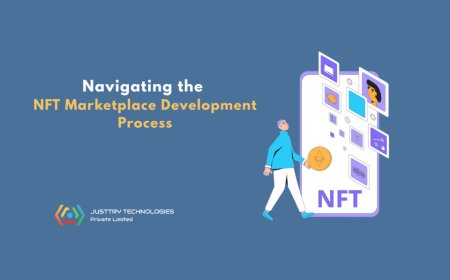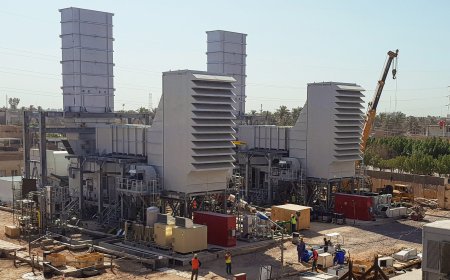Sports and Recreation Facility Real Estate Advisory for Entertainment Sector
Expert advisory on developing and investing in sports and recreation facilities for the entertainment sector, focusing on market insights, site strategy, and financial feasibility.

Introduction
In today's fast-evolving entertainment landscape, sports and recreation facilities are no longer just venues for games or leisure. They are multifunctional hubs designed to provide immersive experiences, foster community engagement, and generate long-term financial returns. As such, the need for specialized real estate services in this niche has never been greater.
From stadiums and arenas to esports complexes and multipurpose recreation centers, investing in or developing these properties requires a strategic blend of market insight, zoning expertise, financial modeling, and design innovation. This is where sports and recreation facility real estate advisory plays a critical role, particularly for stakeholders in the entertainment sector.
The Growing Intersection of Entertainment and Real Estate
The entertainment industry is rapidly integrating with real estate development. With the rise of live events, fitness and wellness movements, and interactive fan experiences, there's increasing demand for spaces that are not only functional but also engaging.
Investors, developers, and entertainment brands are seeking specialized real estate services to help them acquire, plan, and optimize such facilities. Whether its a sports arena with retail integration or a recreational park tied to a streaming brand, real estate strategy must align with both physical utility and brand experience.
Why Specialized Real Estate Advisory Matters
Unlike traditional commercial properties, sports and recreation facilities have unique challenges and opportunities. These include:
-
Zoning and Land Use Constraints: Large-scale sports or recreation venues require specific zoning permissions, parking allowances, and community impact studies.
-
High CapEx and Operational Costs: These facilities typically require significant capital investment, with revenue often fluctuating based on seasons or events.
-
Flexible and Multipurpose Design: Spaces need to accommodate a variety of eventsfrom concerts to community sportsmaximizing utility and revenue streams.
-
Public and Private Partnerships: Many projects involve collaboration between city planners, private developers, and public entities.
Specialized advisory ensures all these factors are considered from day one.
Key Services Offered in Sports & Recreation Facility Real Estate Advisory
1. Market Analysis and Feasibility Studies
Before committing to development, its crucial to understand local market dynamics, demographic trends, and demand forecasts. Real estate advisors conduct comprehensive market analysis, identifying viable locations and sizing opportunities based on community needs and entertainment trends.
2. Site Selection and Acquisition
Identifying the right site involves more than just location. Advisors consider accessibility, competition, potential for future growth, and environmental impact. Through their network and due diligence processes, they secure optimal sites and negotiate favorable acquisition terms.
3. Master Planning and Design Consulting
An experienced real estate advisory team helps translate the vision of the entertainment brand or sports entity into a tangible plan. This includes architectural consulting, space planning, traffic flow analysis, and future-proofing designs to accommodate evolving technology and audience expectations.
4. Financial Modeling and Investment Structuring
One of the most important aspects of any project is its financial viability. Advisors develop detailed pro forma models, ROI analyses, and capital stack structures. They also assist in sourcing funding, whether through institutional investors, government grants, or joint ventures.
5. Entitlement and Zoning Assistance
Navigating local regulations is complex, especially for large-scale venues. Advisors work closely with municipalities to manage permitting, zoning changes, environmental reviews, and community outreach programs.
6. Operations and Revenue Optimization
Post-construction, real estate advisors can assist in selecting operational partners, setting pricing strategies, and integrating ancillary revenue streams (e.g., food and beverage, retail, naming rights).
Use Cases in the Entertainment Sector
- Stadium Redevelopment Projects
Major sports teams often seek to renovate or relocate their home venues. Real estate advisory helps them assess land acquisition, develop mixed-use concepts (e.g., stadiums with attached hotels, retail, or office spaces), and structure public-private financing models.
- Esports Arenas
With the explosive growth of competitive gaming, esports arenas are being built around the world. These require custom configurations for AV infrastructure, audience immersion, and digital broadcast capabilitiesdemanding a real estate partner with technical and entertainment-sector fluency.
- Multi-Use Community Recreation Centers
Cities and private investors alike are funding recreation centers that combine wellness, sports, coworking, and cultural programming. Real estate services support site selection, user experience planning, and operational sustainability modeling.
- Fitness and Wellness Brands Expansion
Franchised fitness companies and wellness retreats are looking for unique venuesboth urban and resort-stylethat reflect their brand ethos. Real estate advisors find and structure leases or purchases that support brand consistency and growth.
Trends Shaping the Future of Sports and Recreation Real Estate
1. Experience-Driven Development
Consumers now expect more than just a facilitythey want an experience. Whether its VR-enhanced training gyms or stadiums with immersive digital fan zones, real estate services must align space with digital and emotional engagement.
2. Mixed-Use Integration
Combining sports or recreation venues with retail, hospitality, and residential units creates ecosystem value. Real estate advisors help design and negotiate complex development plans that attract both tenants and patrons.
3. Sustainability and Smart Design
Green building standards, energy efficiency, and smart technology integration are now baseline expectations. Advisory services are helping clients incorporate LEED certification, solar energy, and IoT systems into facility design.
4. Adaptive Reuse and Urban Infill
Advisors are also helping clients repurpose underutilized urban structuressuch as malls or warehousesinto active recreation spaces, reducing costs and adding community value.
Choosing the Right Real Estate Advisory Partner
When selecting a partner for sports and recreation facility development, entertainment sector players should look for:
-
Proven Track Record in similar projects
-
Deep Industry Relationships with municipalities, architects, and investors
-
Creative Problem-Solving skills for complex zoning or community opposition
-
Understanding of Entertainment Economics, including ticketing, branding, and event cycles
Look for firms that offer end-to-end real estate services from strategic planning to operations handoff.
Conclusion
As the lines between entertainment, wellness, and real estate continue to blur, sports and recreation facility real estate advisory is becoming a critical part of strategic growth for the entertainment sector. These specialized real estate services provide the tools, insights, and partnerships necessary to navigate complex developments, unlock investment potential, and deliver world-class spaces that entertain, inspire, and engage.
References:
Real Estate Regulatory Compliance Advisory for Foreign Developer Entry
Office Space Advisory: Hybrid Work Models and Saudi Corporate Real Estate
Real Estate Asset Management Advisory for Sovereign Wealth Fund Portfolios






























